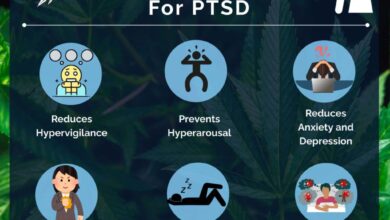
Arthritis higher risk depression is a serious concern, affecting countless individuals worldwide. This condition isn’t just about physical pain; it deeply impacts mental well-being. Understanding the complex interplay between arthritis and depression is crucial for effective treatment and support. This blog post delves into the potential link between these two conditions, exploring risk factors, symptoms, treatment options, and essential support systems.
Arthritis, encompassing various forms like rheumatoid arthritis and osteoarthritis, often leads to chronic pain, physical limitations, and a decreased quality of life. This can trigger or exacerbate depressive symptoms. The pain and fatigue associated with arthritis can create a vicious cycle, where physical discomfort fuels emotional distress and vice versa.
Arthritis and Depression: A Deep Dive
Arthritis, a debilitating condition affecting millions worldwide, is characterized by pain, stiffness, and swelling in the joints. While often viewed as a physical ailment, the impact of arthritis extends far beyond the joints, significantly affecting mental well-being and potentially leading to depression. Understanding the complex interplay between these two conditions is crucial for effective management and support.Arthritis encompasses a wide range of conditions, each with its own characteristics.
Osteoarthritis, the most common type, is often associated with wear and tear on joints over time. Rheumatoid arthritis is an autoimmune disorder where the body’s immune system mistakenly attacks the joints. Other types include psoriatic arthritis, gout, and fibromyalgia. Common symptoms include pain, swelling, stiffness, limited range of motion, and fatigue. These symptoms can significantly impact daily life, affecting everything from simple tasks like getting dressed to engaging in social activities.The physiological impact of arthritis is undeniable.
Chronic pain, inflammation, and reduced mobility can lead to feelings of helplessness and frustration. The physical limitations imposed by arthritis can also affect self-esteem and body image, further contributing to psychological distress. The constant struggle to manage symptoms can lead to feelings of isolation and loneliness. Furthermore, the need for frequent medical appointments, medication management, and physical therapy can create a heavy burden on individuals and their families.The psychological impact of arthritis is just as profound.
The chronic pain and discomfort associated with arthritis can trigger or exacerbate feelings of sadness, hopelessness, and worthlessness. These feelings can escalate into depression, a serious mental health condition characterized by persistent low mood, loss of interest in activities, and changes in sleep and appetite. Furthermore, social isolation, financial strain, and a loss of independence can further fuel feelings of despair.
The mental toll of managing arthritis can be just as significant as the physical burden.Prevalence of arthritis is a significant public health concern. Millions worldwide are affected by various forms of arthritis, with prevalence rates varying based on factors like age, gender, and ethnicity. This widespread impact underlines the importance of understanding the link between arthritis and mental health.Different forms of depression exhibit various symptoms.
Major depressive disorder is characterized by persistent sadness, loss of interest, and significant changes in sleep and appetite. Persistent depressive disorder, also known as dysthymia, involves a chronic low mood that lasts for at least two years. Other forms of depression may include seasonal affective disorder, postpartum depression, and premenstrual dysphoric disorder. Each form presents unique symptom patterns, and it’s crucial to seek professional diagnosis for accurate treatment.The connection between arthritis and depression is complex and multifaceted.
The chronic pain, fatigue, and physical limitations associated with arthritis can trigger or exacerbate depressive symptoms. The social isolation and financial strain that often accompany arthritis can also contribute to a sense of hopelessness and despair. Moreover, the uncertainty and lack of control over the progression of arthritis can lead to feelings of helplessness and vulnerability. This creates a vicious cycle, where the physical condition exacerbates the mental health issues and vice versa.
Factors such as a lack of social support, previous mental health issues, and a family history of depression also increase the risk.
Risk Factors for Depression in Arthritis Patients

Living with arthritis can be incredibly challenging, impacting not just physical well-being but also mental health. Depression is a significant concern for those managing chronic pain and the myriad limitations arthritis can impose. Understanding the risk factors is crucial for early intervention and effective support strategies. This exploration delves into the complexities of these factors, highlighting the specific challenges faced by individuals with different types of arthritis.The interplay between physical limitations, emotional distress, and social circumstances often creates a perfect storm for depression in arthritis patients.
Factors like pain intensity, treatment side effects, and the perception of social isolation can significantly contribute to the development of depressive symptoms. Recognizing these elements empowers individuals and healthcare providers to proactively address the mental health needs of arthritis sufferers.
Physical Limitations and Pain Levels, Arthritis higher risk depression
Arthritis often leads to physical limitations, impacting daily activities and independence. Reduced mobility and the constant struggle with pain can significantly impact self-esteem and create a sense of helplessness. The unpredictable nature of pain can lead to anxiety and fear, further exacerbating the risk of depression. For example, a patient with rheumatoid arthritis experiencing severe joint pain may struggle with simple tasks like dressing or preparing meals, which can diminish their sense of self-efficacy and increase feelings of isolation.
It’s well-documented that arthritis can significantly increase the risk of depression. Dealing with chronic pain and the limitations it brings can be incredibly tough, and unfortunately, this can lead to feelings of hopelessness and isolation. Similar to how long covid can cause heart problems along with breathing difficulties , the body’s response to these conditions can impact mental well-being.
Ultimately, understanding these interconnected issues is crucial for developing holistic approaches to care and support.
Furthermore, the intensity and chronicity of pain are key factors in the development of depression in arthritis. Studies consistently demonstrate a strong correlation between high pain levels and a higher risk of depressive symptoms.
Social Isolation
The physical limitations imposed by arthritis can lead to social isolation. Difficulty participating in social activities, maintaining friendships, and engaging in hobbies can contribute to feelings of loneliness and hopelessness. This isolation can create a vicious cycle, where reduced social interaction worsens mood and further reduces motivation to engage in social activities. For example, someone with osteoarthritis who finds it difficult to walk long distances might avoid social gatherings, leading to feelings of loneliness and further impacting their mental well-being.
Financial Strain
The cost of managing arthritis can be substantial, encompassing medication, therapy, assistive devices, and potential lost income due to reduced productivity or time off work. This financial burden can create significant stress and anxiety, potentially contributing to depression. For example, a person with psoriatic arthritis facing substantial medical expenses might experience financial strain, impacting their overall well-being and increasing the risk of depressive symptoms.
The financial stress associated with arthritis can exacerbate the existing challenges and create a significant barrier to mental well-being.
Impact of Different Types of Arthritis
The specific type of arthritis can influence the risk factors for depression. For example, rheumatoid arthritis, characterized by systemic inflammation, often presents with more severe physical limitations and a greater risk of fatigue. This can significantly impact a person’s ability to engage in social activities and contribute to feelings of isolation and hopelessness. Conversely, osteoarthritis, which primarily affects weight-bearing joints, might present with more gradual progression of limitations, potentially leading to a slower, more insidious development of depressive symptoms.
However, the pain and limitations associated with any form of arthritis can contribute to the development of depression.
Role of Chronic Pain in Depression
Chronic pain, a hallmark of arthritis, plays a pivotal role in the development of depression. The constant discomfort and unpredictability of pain can lead to a range of negative emotions, including frustration, anger, and hopelessness. This sustained stress response can disrupt the body’s natural equilibrium, increasing vulnerability to depression. Furthermore, the pain itself can be a significant source of emotional distress, creating a cycle of pain and negative emotions.
The constant struggle with pain can disrupt sleep patterns, further impacting mood and cognitive function, and potentially increasing the risk of depression.
Impact of Arthritis Treatment on Depression Risk
Treatment options for arthritis, while crucial for managing pain and improving physical function, can also have an impact on the risk of depression. Certain medications may have side effects that contribute to mood changes. For instance, some nonsteroidal anti-inflammatory drugs (NSAIDs) can cause gastrointestinal distress, impacting appetite and overall well-being, and potentially contributing to depressive symptoms. Furthermore, the side effects of certain disease-modifying antirheumatic drugs (DMARDs) can also affect mood and energy levels, increasing the risk of depression.
Careful monitoring and management of medication side effects are crucial in mitigating this risk.
Coping Mechanisms and Support Systems
Developing effective coping mechanisms and having a strong support system are essential for managing the risk of depression in arthritis patients. This includes adopting healthy lifestyle habits, such as regular exercise, a balanced diet, and stress management techniques. Moreover, social support from family, friends, and support groups can provide a sense of belonging and reduce feelings of isolation.
Effective communication with healthcare providers is also crucial in addressing both physical and mental health concerns. This may involve seeking professional counseling to develop coping strategies and improve overall well-being. Having a strong support network, including family, friends, and support groups, can significantly reduce the risk of depression.
Symptoms and Identification of Depression in Arthritis Patients
Living with arthritis can be incredibly challenging, impacting not only physical well-being but also mental health. Depression is a significant risk for individuals with arthritis, often overlapping with the physical pain and limitations. Recognizing the subtle signs of depression in this population is crucial for early intervention and improved quality of life.Understanding how arthritis symptoms can mask or mimic depressive symptoms is vital.
Many individuals may attribute their mood changes or fatigue to the physical effects of their arthritis, delaying or overlooking the presence of a co-occurring depressive disorder. This often results in a delayed diagnosis and treatment, which can have long-term consequences. Early detection is key to ensuring patients receive the support they need to manage both their physical and mental health effectively.
Common Symptoms of Depression in Arthritis Patients
Recognizing the symptoms of depression in individuals with arthritis requires careful consideration of how these symptoms might manifest differently compared to those without the condition. Pain, fatigue, and limited mobility can easily mask or mimic depressive symptoms. This overlap can lead to misdiagnosis or delayed intervention.
Distinguishing Arthritis Symptoms from Depression Symptoms
Accurate diagnosis requires a careful assessment of both physical and psychological factors. While some symptoms overlap, key differences can guide the process. For example, persistent fatigue that is directly attributable to physical limitations from arthritis should be distinguished from the pervasive fatigue associated with depression. The key is to note the
- intensity* and
- duration* of symptoms.
A doctor, or a qualified mental health professional, can assist in differentiating between the symptoms. They will consider the patient’s medical history, including the severity and duration of arthritis, and conduct a thorough evaluation of both physical and mental health. Regular check-ups and open communication between the patient and healthcare team are essential for early detection and intervention.
Dealing with arthritis can be tough, and unfortunately, it’s linked to a higher risk of depression. Finding healthy coping mechanisms is crucial, and sometimes, that involves exploring alternative solutions. For example, some people are turning to substances like kratom, but federal agencies are actively trying to regulate and possibly ban it. federal agencies trying to get rid of kratom.
This raises concerns about access to potential pain relief options for those struggling with conditions like arthritis. Ultimately, managing the complex interplay of physical and mental health challenges requires careful consideration of all options, and the potential impact of policy changes.
Methods for Early Detection and Intervention
Early detection and intervention are critical for improving outcomes in arthritis patients experiencing depression. Open communication with healthcare providers is paramount. Regular check-ups, including both physical and mental health assessments, can help identify potential warning signs early. Asking direct questions about mood, sleep patterns, appetite, and energy levels, in addition to the typical physical assessments, is critical.Furthermore, educating both patients and healthcare providers about the potential for depression in arthritis patients can help to promote early identification.
Support groups and educational resources can empower individuals to recognize and address the signs of depression. Recognizing the overlap of symptoms and the importance of a holistic approach to care can lead to more effective treatment plans.
Treatment and Management Strategies
Living with both arthritis and depression can feel overwhelming. However, effective treatment strategies exist to help manage both conditions, improving quality of life and overall well-being. Understanding the diverse approaches and integrating them tailored to individual needs is crucial for successful management.Addressing arthritis and depression simultaneously requires a multifaceted approach, recognizing that these conditions often influence each other.
A holistic plan that incorporates medication, therapy, and lifestyle modifications can lead to significant improvements in both physical and mental health.
Medication Options
Pharmacological interventions are often a vital component in managing arthritis and depression. Different medications target various aspects of these conditions, offering symptom relief and improved mood. Pain relievers, such as nonsteroidal anti-inflammatory drugs (NSAIDs) and opioids, can help alleviate arthritis pain. Antidepressants, including selective serotonin reuptake inhibitors (SSRIs) and serotonin-norepinephrine reuptake inhibitors (SNRIs), can effectively treat depressive symptoms.
It’s important to consult a healthcare professional to determine the most suitable medications and dosages based on individual needs and potential side effects.
Therapy Approaches
Therapeutic interventions provide valuable support and coping mechanisms for managing the emotional and psychological challenges associated with both arthritis and depression. Cognitive Behavioral Therapy (CBT) is a highly effective approach that helps patients identify and modify negative thought patterns and behaviors contributing to their conditions. Interpersonal therapy (IPT) can address relationship difficulties and social isolation, which can be common factors exacerbating depression in arthritis patients.
Support groups provide a safe space for sharing experiences, fostering a sense of community, and reducing feelings of isolation.
Lifestyle Modifications
Adopting healthy lifestyle choices plays a crucial role in managing both arthritis and depression. Regular exercise, such as low-impact activities like swimming or walking, can reduce pain and stiffness associated with arthritis, while also boosting mood and reducing stress. A balanced diet rich in fruits, vegetables, and whole grains provides essential nutrients to support overall health and well-being.
Stress management techniques, such as mindfulness meditation and yoga, can help alleviate stress and improve emotional regulation, indirectly benefiting both conditions.
Integrated Treatment Strategies
Successfully managing both arthritis and depression necessitates integrating various treatment strategies. A collaborative approach involving the patient, physician, therapist, and other healthcare professionals is essential. For instance, a patient with rheumatoid arthritis experiencing depressive symptoms might benefit from a combination of NSAIDs for pain relief, an SSRI for depression, CBT sessions for managing negative thoughts, and regular exercise for physical well-being.
A tailored plan that acknowledges the interconnectedness of these conditions is key to achieving optimal outcomes.
It’s fascinating how seemingly disparate health conditions can be linked. For example, arthritis is known to increase the risk of depression. Understanding the potential genetic factors involved in these conditions is crucial. If you’re facing metastatic breast cancer and considering genetic testing, it’s vital to ask your doctor the right questions. Genetic testing for metastatic breast cancer questions to ask your doctor can help you navigate this complex process.
Ultimately, a deeper understanding of the genetic underpinnings of conditions like arthritis and its connection to depression is crucial for improved patient care and management.
Table of Treatment Modalities
Successful Interventions and Case Studies
Numerous case studies demonstrate the effectiveness of integrated treatment approaches. One example involved a patient with osteoarthritis who experienced significant pain and depressive symptoms. Through a combination of pain medication, physical therapy, CBT, and a structured exercise program, the patient reported a substantial reduction in pain and improved mood. Another case study highlighted the importance of addressing social isolation in arthritis patients.
Through participation in a support group and IPT, patients were able to connect with others facing similar challenges, reducing feelings of isolation and improving overall well-being.
Support Systems and Resources
Navigating arthritis and depression can feel isolating. However, knowing you’re not alone and having access to appropriate support systems can significantly improve your well-being. Building a strong support network is crucial for managing both the physical and emotional challenges of these conditions.Strong support networks provide a sense of belonging, reduce feelings of loneliness, and offer practical assistance. They offer emotional validation, practical advice, and encouragement to stay motivated in your treatment and recovery journey.
This is especially true for those facing the double whammy of chronic pain and mental health concerns.
Social Support Networks
Social support networks are vital for managing the emotional toll of arthritis and depression. These networks provide a sense of belonging and shared experience, reducing feelings of isolation and promoting a sense of community. Friends, family, and support groups can offer encouragement, understanding, and practical help.
Support Groups
Support groups offer a safe and confidential space to connect with others facing similar challenges. They provide a platform for sharing experiences, learning coping strategies, and gaining support from individuals who truly understand the unique challenges of arthritis and depression. Many local hospitals, community centers, and online platforms offer arthritis and/or mental health support groups.
Online Communities
Online communities can be incredibly valuable, particularly for individuals who may not have access to local support groups or prefer the anonymity of online interaction. These communities allow for sharing experiences, finding advice, and connecting with others who understand the struggles of living with arthritis and depression. Online forums and social media groups can provide a sense of community and a platform for support and information sharing.
Family and Friends
Family and friends play a vital role in providing emotional and practical support. Open communication, active listening, and offering assistance with daily tasks can significantly ease the burden of managing both physical and mental health concerns. Empathy and understanding from loved ones can make a profound difference in navigating the challenges of the condition. Encouraging healthy lifestyle choices and providing practical help, such as transportation or meal preparation, is also crucial.
Self-Care Strategies
Self-care is paramount for maintaining well-being in the face of arthritis and depression. Engaging in activities that promote relaxation, reduce stress, and foster a sense of accomplishment are crucial. These activities can include meditation, yoga, spending time in nature, or engaging in hobbies. Prioritizing sleep, maintaining a healthy diet, and regular exercise also contribute significantly to overall well-being.
Resources for Finding Support
Accessing resources that offer guidance and support is essential. Local hospitals, community centers, and mental health organizations often provide information and support services. Online search engines and directories can help locate relevant support groups and resources. Don’t hesitate to reach out to healthcare providers for guidance on finding appropriate support networks.
Prevention Strategies

Taking proactive steps to prevent both arthritis and depression is crucial for maintaining overall well-being. By addressing potential risk factors and adopting healthy lifestyle choices, individuals can significantly reduce their likelihood of developing these conditions. This proactive approach not only promotes physical health but also mental resilience.
Lifestyle Modifications for Arthritis Prevention
Adopting a healthy lifestyle is fundamental in preventing arthritis. A balanced diet rich in fruits, vegetables, and whole grains, coupled with regular exercise, can significantly reduce the risk of developing certain types of arthritis, particularly osteoarthritis. Maintaining a healthy weight is equally important, as excess weight puts added stress on joints, increasing the risk of developing or exacerbating arthritis.
- Balanced Diet: A diet rich in anti-inflammatory foods, such as omega-3 fatty acids (found in fish), fruits, and vegetables, can help reduce inflammation in the body, a key factor in arthritis development. Limiting processed foods, sugary drinks, and excessive saturated fats is also crucial.
- Regular Exercise: Engaging in regular physical activity strengthens muscles and supports joint health. Low-impact exercises like swimming, walking, and cycling are particularly beneficial. Consistency is key, aiming for at least 150 minutes of moderate-intensity aerobic activity per week.
- Maintaining a Healthy Weight: Excess weight puts added stress on joints, increasing the risk of developing or worsening arthritis. A healthy weight reduces the strain on joints and can help prevent further damage.
- Avoiding Joint Injuries: Protecting joints from injury through proper posture, lifting techniques, and wearing appropriate footwear is crucial. Activities that place excessive stress on joints should be approached with caution and proper technique.
Lifestyle Modifications for Depression Prevention
Maintaining a positive outlook and proactively managing stress is essential in preventing depression. Cultivating healthy coping mechanisms and building strong social support networks are vital in reducing the risk of developing this condition.
- Stress Management Techniques: Learning and practicing stress management techniques, such as mindfulness, meditation, and deep breathing exercises, can help regulate emotional responses and reduce the risk of developing depression. Identifying and managing stressors is key.
- Adequate Sleep: Prioritizing sufficient sleep is crucial for both physical and mental well-being. Consistent sleep patterns and a conducive sleep environment are essential for preventing depression.
- Social Connection: Maintaining strong social connections and engaging in meaningful relationships can buffer against stress and promote emotional well-being. Engaging in activities that foster social connection is important.
- Regular Physical Activity: Physical activity has been shown to have a positive impact on mood and reduce the risk of depression. Regular exercise releases endorphins, which have mood-boosting effects. Incorporating physical activity into daily routines is essential.
Managing Arthritis Pain and Stress
Effective pain management strategies are crucial for individuals living with arthritis. These strategies should address both the physical pain and the emotional distress associated with the condition.
- Heat and Cold Therapy: Using heat packs or cold compresses can help manage pain and inflammation in affected joints. Proper application of these therapies can provide temporary relief and reduce discomfort.
- Medications and Therapies: Pain relievers, such as over-the-counter options or prescribed medications, can help manage pain symptoms. Physical therapy and occupational therapy can provide guidance and techniques for managing pain and improving joint function.
- Mindfulness and Relaxation Techniques: Mindfulness and relaxation techniques, such as meditation and deep breathing exercises, can help manage stress and anxiety related to arthritis. These techniques can be very effective in reducing pain perception.
- Support Groups: Connecting with others who understand the challenges of living with arthritis can provide emotional support and practical advice. Support groups offer a sense of community and shared experience.
Summary: Arthritis Higher Risk Depression
In conclusion, arthritis higher risk depression highlights a critical need for comprehensive care that addresses both the physical and mental health needs of those affected. Recognizing the symptoms, understanding risk factors, and accessing appropriate treatment options are essential steps in managing both conditions effectively. Building strong support systems and prioritizing self-care are equally important for navigating this complex challenge.





